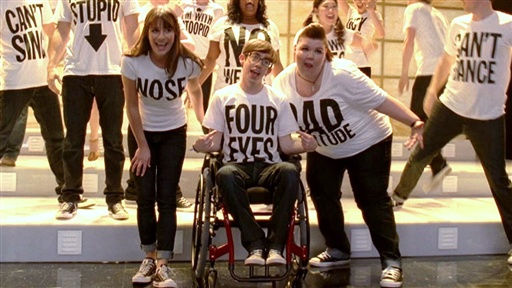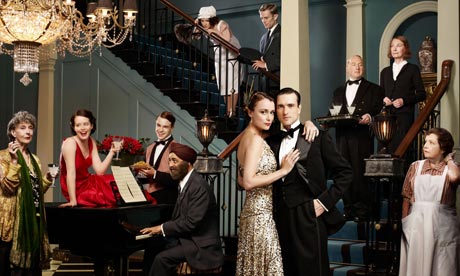
Oh, Glee. Tonight's episode left audiences wanting. Wanting for more substance, more charm, more charisma. It seems that plot and character development have fallen by the wayside in lieu of soap boxes and A-list guest stars. And, while I am all too happy for the series' success, I think that some changes need to be made.
First, while I understand that Oscar winners and Broadway divas are fantastic and should be showcased, the entire plot doesn't need to stop to accommodate them. Gwenyth Paltrow's character, while fun, zapped all of the energy from her episodes. And theme shows (I'm looking at you, Britney and Bieber), are a great way to attract advertisers, but not necessarily helpful to the story. If it doesn't create a dynamic arena for plot, then it needs to be cut.
Also, I didn't realize that I was watching an after-school special on Tuesday nights. It seems that each episode is devoted to a multitude of issues, be it bullying, identity and/or self-acceptance (and that was just tonight's show). I do think that Glee, as a powerful, popular show, has a right and a duty to take a stand on issues. We live in a world where people commit suicide for being harassed, yet as a nation we mocked a 13-year-old's music video. What does that say about our society? And I think that shows like Glee, with its enormous following, can be a force for good in creating a more loving, accepting world. However, I think that these messages would be more powerful and reach more people if each one was given it's due. Lumping a handful of problems together creates a confusing message. Stark strength of purpose is what's needed to get people to listen, not a smorgasbord of today's dilemmas. Power isn't in quantity; it's quality that creates an impact.
I'm hopeful for these next episodes. Perhaps it's a sophomore slump, or maybe Glee's just out of key. I'll hum a few bars, and maybe we'll harmonize once again.
image via




